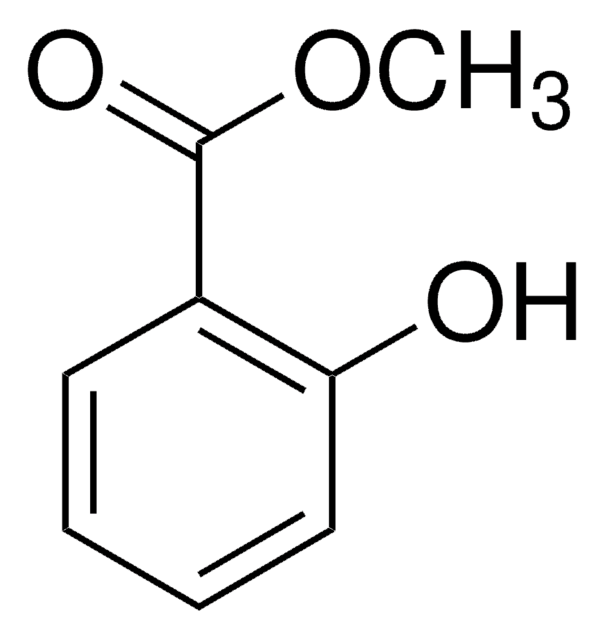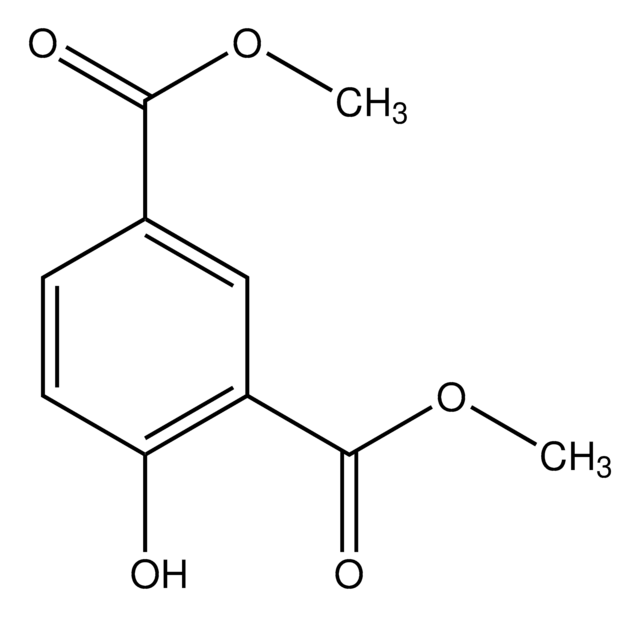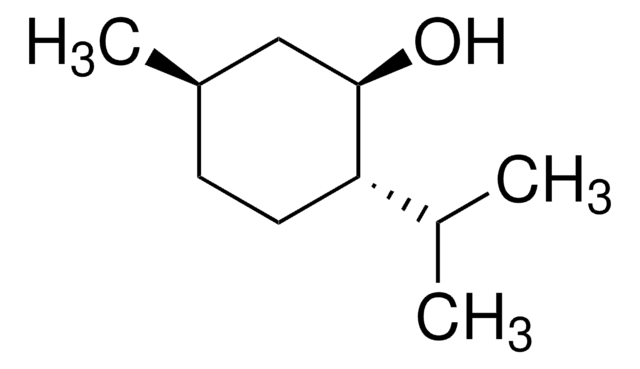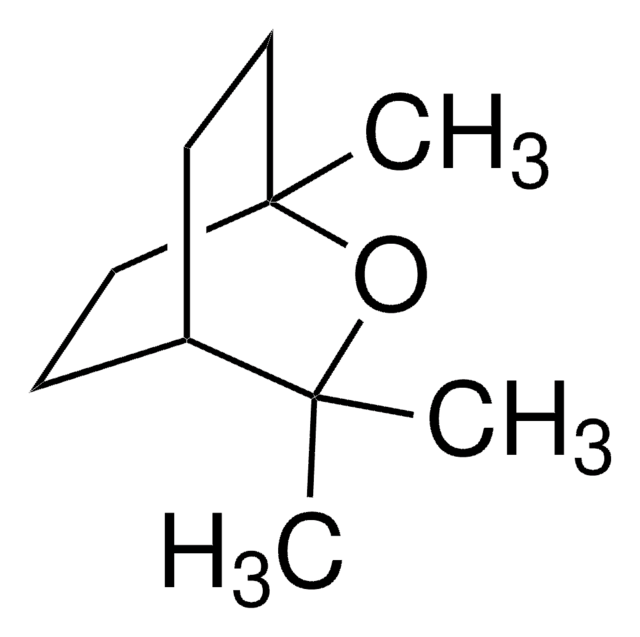1437450
USP
Methyl salicylate
United States Pharmacopeia (USP) Reference Standard
Sinónimos:
2-Hydroxybenzoic acid methyl ester, Methyl 2-hydroxybenzoate, Oil of wintergreen, Wintergreen oil
About This Item
Productos recomendados
grado
pharmaceutical primary standard
densidad de vapor
5.26 (vs air)
presión de vapor
1 mmHg ( 54 °C)
familia API
methyl salicylate
temp. de autoignición
847 °F
fabricante / nombre comercial
USP
índice de refracción
n20/D 1.536 (lit.)
bp
222 °C (lit.)
mp
−8-−7 °C (lit.)
densidad
1.174 g/mL at 25 °C (lit.)
aplicaciones
pharmaceutical (small molecule)
formato
neat
cadena SMILES
COC(=O)c1ccccc1O
InChI
1S/C8H8O3/c1-11-8(10)6-4-2-3-5-7(6)9/h2-5,9H,1H3
Clave InChI
OSWPMRLSEDHDFF-UHFFFAOYSA-N
¿Está buscando productos similares? Visita Guía de comparación de productos
Descripción general
Aplicación
Nota de análisis
Otras notas
Producto relacionado
Palabra de señalización
Danger
Frases de peligro
Consejos de prudencia
Clasificaciones de peligro
Acute Tox. 4 Oral - Aquatic Chronic 3 - Eye Dam. 1 - Repr. 2 - Skin Sens. 1B
Código de clase de almacenamiento
10 - Combustible liquids
Clase de riesgo para el agua (WGK)
WGK 2
Punto de inflamabilidad (°F)
204.8 °F - closed cup
Punto de inflamabilidad (°C)
96 °C - closed cup
Certificados de análisis (COA)
Busque Certificados de análisis (COA) introduciendo el número de lote del producto. Los números de lote se encuentran en la etiqueta del producto después de las palabras «Lot» o «Batch»
¿Ya tiene este producto?
Encuentre la documentación para los productos que ha comprado recientemente en la Biblioteca de documentos.
Los clientes también vieron
Nuestro equipo de científicos tiene experiencia en todas las áreas de investigación: Ciencias de la vida, Ciencia de los materiales, Síntesis química, Cromatografía, Analítica y muchas otras.
Póngase en contacto con el Servicio técnico








